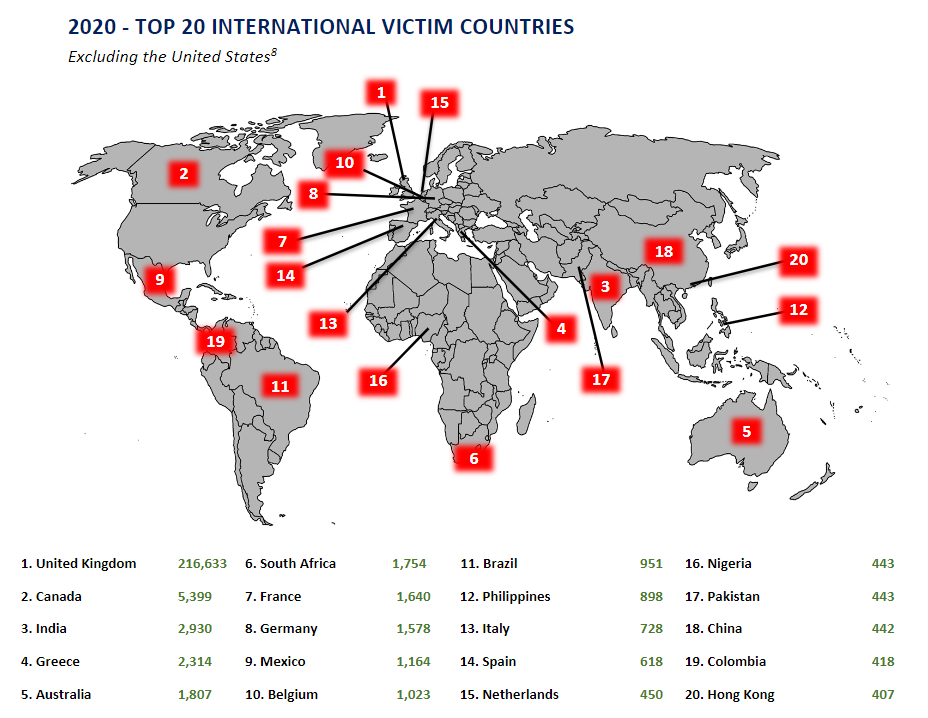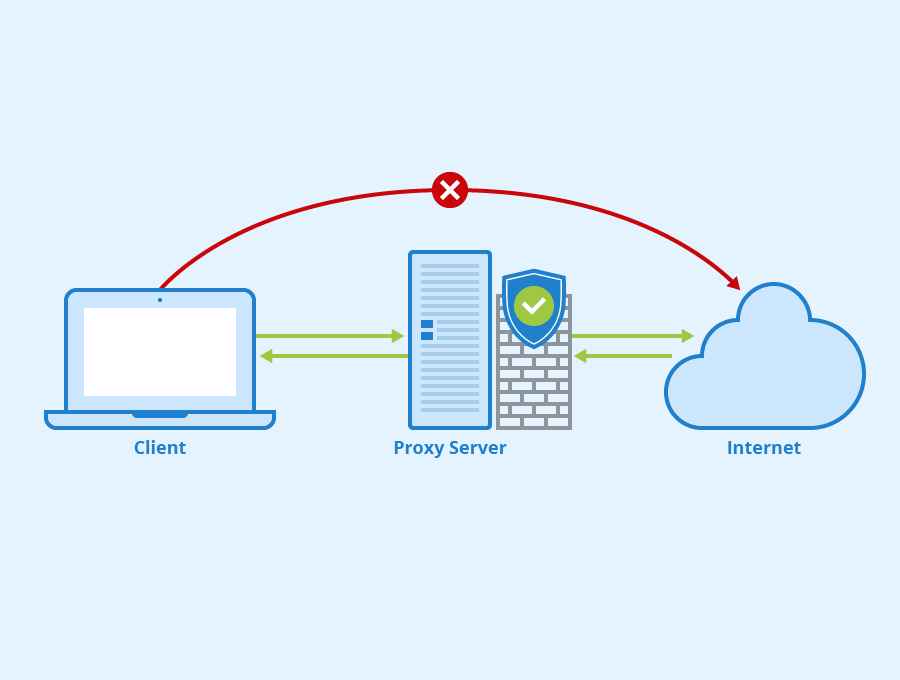Statistics
According to the 2020 Internet Crime Report, 791,790 complaints of suspected internet crime have been reported an increase of more than 300,000 complaints from 201 and reported losses exceeding $4.2 billion. These include investment fraud, email phishing, ransomware attacks, and more.
These statistics suggest that cybercrime is a growing problem that affects the entire world. However, proxy servers allow both businesses and individuals to protect themselves.
A proxy server: what is it?
A proxy, which is often referred to as a proxy server, is a middleman, either actual or virtual, through which all internet traffic from your computer or a web server is routed. Your computer's requests are given a new IP address through the proxy, making your surfing activity anonymous.
Each computer has an IP address, or Internet Protocol address. As a result, other computers and gadgets can connect with you since they are aware of who is sending and receiving information.
However, those individuals or businesses who are interested in using a proxy do so for a cause. Direct interaction is not appealing to them. The proxy is the third entity that is introduced at this point. This performs the same purpose as a computer because proxies too have their own IP address.
The Use of Proxies in Cybersecurity
1. Protection against Email Phishing
Email phishing refers to a form of cybercrime where criminals impersonate organisations through emails or text messages. They do this in order to steal money or credentials of users’ accounts.
To prevent this, organisations can use proxy servers. Proxies for email protection facilitate seamless scraping, which checks emails for harmful content or links. As a result, they prevent dangerous emails from reaching inboxes.
2. Brand/Identity Theft Protection
Businesses lose billions of dollars due to the issue of counterfeiting. These criminals commit identity theft or brand theft. First, they create fake products that they then package using registered trademarks of known brands and companies. Finally, the counterfeiters sell the products as genuine through either e-commerce outlets or brick-and-mortar stores.
Fortunately, companies can monitor listings of the said products using proxy servers. In fact, proxies offer access to geo-blocked websites. This, coupled with datacenter proxies’ performance and speed attributes, helps businesses protect their brands.
3. Prevention of Attacks and Data Breaches
Cybercriminals often set up entire scam phishing websites whose URLs resemble businesses’ actual URLs. In 2021 alone, a total of 611,877 phishing sites were recorded, up by 269% compared to 2020.
With fast and powerful datacenter proxies, companies can undertake web scraping to identify and stop phishing sites from operating.
4. Malware Protection
Companies can use transparent proxies to block websites that contain malware. This type of proxy allows users to connect to other secure websites. In this regard, users may not notice their existence in a network, hence the name transparent proxies.
Proxy servers Vs Virtual private networks
A Virtual Private Network (VPN) is a private network that extends across a public network or the Internet. They are a particular implementation of a proxy server. While a standalone proxy handles network traffic, a VPN goes beyond that by additionally encrypting the transmitted data.
VPN's
- VPNs are great for manual tasks and for individuals who are looking to view remote content or shop on an eCommerce site locally.
- VPNs can be used to bypass geo-restrictions and access content that would otherwise be unavailable in a user’s current location.
Proxy servers
- Proxies are often used by businesses that want to collect large amounts of data by using local IPs and devices
- Proxy servers enable concurrent requests, as well as scaling data collection up or down based on company needs
Potential Consequences of Using a Proxy Server?
Like any third-party service operating over the Internet, proxy servers are not without their cyber risks. Users should understand the common risks associated with proxies to decide if they are fit-for-purpose.
- Lack of encryption
- Data logging
- Open ports
- Limited privacy
- Inconsistent speed
Conclusion
On big networks, proxy servers help to increase reliability by preventing harmful data, they also let you cache your web content and provide protection againts scams and frauds.
Connect me on LinkedIn :)







0 Comments